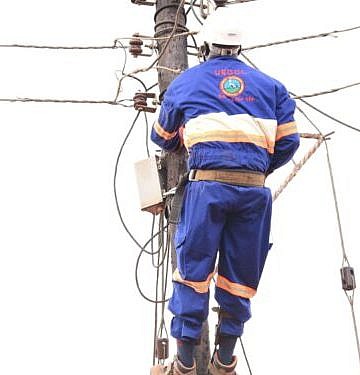Uganda is on the brink of a transformative milestone in its energy sector, with the country’s first oil refinery expected to commence operations between late 2029 and early 2030.
The announcement was made by Michael Nkambo Mugerwa, General Manager of the Uganda Refinery Holding Company (URHC), during the Invest in Uganda panel at the African Energy Week (AEW) 2025 in Cape Town.
Valued at $4 billion (UGX 15.2 trillion), the refinery—set to be constructed in Kabaale, Hoima District—will process 60,000 barrels of crude oil per day. It stands among Uganda’s most ambitious infrastructure projects to date, and is a cornerstone of the country’s broader strategy to attain energy independence, stimulate industrialisation, and drive long-term economic transformation.
The refinery is being developed under a joint venture between the Uganda National Oil Company (UNOC) and Alpha MBM Investments of the United Arab Emirates, with UNOC holding a 40% stake and Alpha MBM providing the remaining 60% of project financing, a deal that was finalized in March 2025.
“This project goes beyond refining crude oil,” Mugerwa said. “We are building a foundation for industrial transformation—from petrochemicals and fertilizers to kerosene and gas processing. The refinery is designed to unlock the entire value chain of Uganda’s oil economy.”
The facility will be part of a larger integrated industrial park, already attracting significant private investment.
According to Mugerwa, investors have committed between $3 billion and $4 billion (UGX 11.4–15.2 trillion) to developments within the park, with a further $1–2 billion (UGX 3.8–7.6 trillion) expected as progress accelerates. So far, 15 companies have secured space in the zone, which will be supported by a 200MW transmission line and robust road and water infrastructure.
Strategically located in Western Uganda, the refinery and associated complex are expected to supply refined petroleum products to regional markets including Tanzania, the Democratic Republic of the Congo (DRC), and beyond—positioning Uganda as a future energy and logistics hub in East and Central Africa.
Highlighting Uganda’s favourable investment climate, Humphrey Asiimwe, CEO of the Uganda Chamber of Energy and Minerals, pointed to peace, stability, and investor incentives such as zero import tax on equipment, a young workforce, and access to key regional markets.
“There is peace, security, and a young workforce. Import tax on equipment is zero, and investors gain direct access to markets in Tanzania, Kenya, and the DRC,” Asiimwe noted. “With such an environment, Uganda stands out as the ideal destination for energy investment.”
Meanwhile, the government is making parallel investments in expanding the country’s energy infrastructure.
Irene Bateebe, Permanent Secretary at the Ministry of Energy and Mineral Development, revealed that Uganda is targeting a 10,000 MW energy portfolio, drawing from hydro, solar, and nuclear sources.
Over $5 billion (shs19 trillion) has already been committed to power infrastructure, a crucial support pillar for both the refinery and broader industrialisation plans.
On the upstream front, UNOC continues to strengthen its operations. Philips Obita, UNOC’s General Manager for Upstream, said the company currently holds commercial interests of up to 150,000 barrels and remains actively involved in the East African Crude Oil Pipeline (EACOP).
He stressed the importance of investing in local content, skills development, and reducing dependence on foreign contractors.
“Oil and gas are finite, which is why we’re prioritizing local content, technology transfer, and building domestic expertise,” Obita said.
He confirmed that five exploration projects are ongoing, with seismic surveys to identify new reserves expected to conclude by November 2025. UNOC is also establishing its own geophysical services to cut reliance on external providers.
With financing secured, investor confidence high, and infrastructure development underway, Uganda’s long-awaited refinery project is finally gaining real momentum.
Beyond crude oil processing, the venture is expected to drive industrial diversification, generate thousands of jobs, and enhance regional trade competitiveness—moving the country closer to its long-term vision of energy independence and economic self-reliance.







































